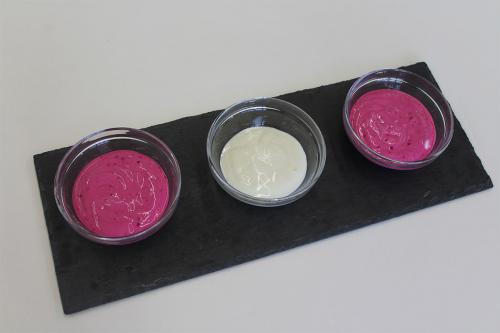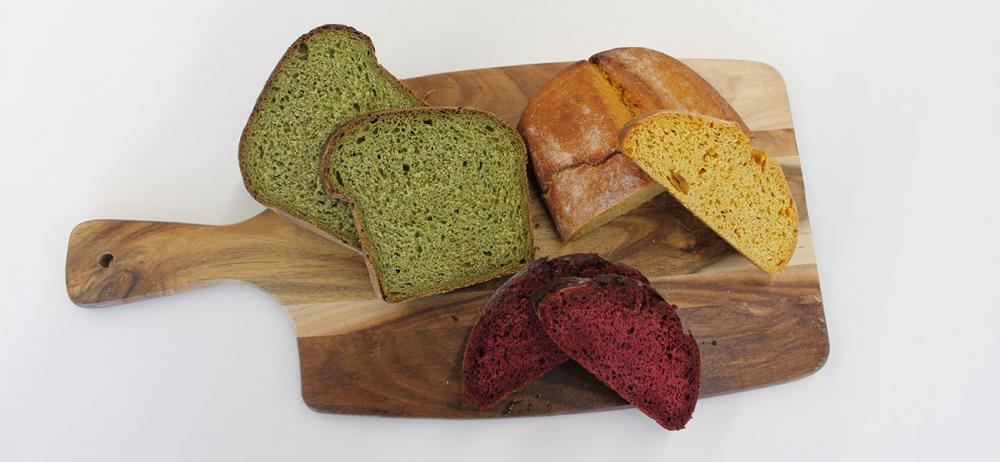Food reformulation is defined as the re-designing of an existing processed food product with the objective of making it healthier. The concept of food reformulation was initially based on targeting specific food ingredients, which are considered harmful for human health and include sugar, salt and saturated fat. In the last years, the concept of reformulating foods has evolved, as it is realized that the process of re-designing foods can also have additional health benefits. In this article, we will explain some some of the ways we are incorporating healthy ingredients from a variety of sources into recipes to develop novel formulations of foods.

Stage
Purpose
Diet-related diseases are on the rise in westernized countries. This trend poses a public health challenge and concerns various segments of the society including policy makers, nutritionists, healthcare scientists, food manufacturers and consumers.
One of the strategies employed by regulatory authorities in Europe and the United Nations is to facilitate food reformulation to target salt consumption in the first instance.
Food reformulation, can also be effectively used as strategy to make foods more nutritious by introducing essential nutrients and healthy ingredients in the diet, or by replacing artificial additives, such as preservatives with natural products.
Food reformulation is defined as the re-designing of an existing processed food product with the objective of making it healthier.
For instance, this practice can be adopted for increasing the daily fruit and vegetable intake of the population. Furthermore, reformulating foods may also be a good option for improving the sustainability of our diet by introducing “waste” (and underutilized) ingredients into the food chain.
Thus food reformulation is regarded as a realistic opportunity to provide healthier, nutritious and sustainable food choices to the consumers and likewise improve public health.
On the other hand, reformulation poses many technological challenges to food manufacturers. Most, if not all, ingredients are included in processed foods to serve a purpose. By removing an “unhealthy” ingredient and/or new ingredients in the recipe, the safety, structure or taste of the food may be compromised and this is likely to affect product acceptability.
The purpose of our research is to develop reformulated products with improved nutritional profile and assess their commercial feasibility by considering important parameters, such as shelf-life and flavor.
Results
We have shown that reformulation can be effective for improving the health properties of processed foods. We found that adding beetroot to foods, such as burgers and mayonnaise, improved their shelf life and antioxidant properties.
These effects were due to the rich presence of phytochemicals, such as betalains that have strong antioxidant properties. Similar effects were seen when beetroot was added to sponge cake, and helped keep the cake moist for longer.
Another example involves adding herb extracts (such as rosemary) to cooking oils, which helps delay the degradation of oil and improve its health properties.
Overall our work shows that synthetic compounds in processed foods could be replaced with natural substitutes, often with multiple benefits.
Since fruit and vegetable consumption is low in Scotland we are looking at how reformulation could be used to increase their intake.
We developed breads and yoghurts containing vegetables, and analysis showed they had higher amounts of fiber, vitamins and phytochemicals compared to plain alternatives.
Taste sessions at public engagement events showed the reformulated foods were well accepted by the public, particularly children.
We also developed breads containing broad bean hull, which is a by-product of bean processing and rich in fiber, protein and phytochemicals. Experiments showed that bean hull has good anti-diabetic properties.
Benefits
Our work is geared at translating science into real benefits for Scotland. Processed food consumption in Scotland is high and there is increasing pressure to improve their health properties.
Our findings showed that natural ingredients can be used to replace synthetics in foods, enabling the production of healthier processed foods. This also benefits food processors who are able to produce ‘clean-label’ products with improved physical properties and shelf life.
Similarly, our work on oils can help food producers and restaurants extend the usage life of oil and products made from them, thereby improving profits.
Our work is demonstrating that reformulation can be used for improving public health. These products also benefit food manufacturers through widening healthy product portfolios.
A good example is the vegetable breads we developed, which received strong industry interest and resulted in the initiation of a collaborative project between us, an ingredients producer and a prominent Scottish bakery company to explore their commercialisation.

The introduction of such products to the market will provide more avenues by which the Scottish population can meet dietary recommendations, such as 5-a-day.
As the population increases, improving sustainability is a priority, and our work with bean hull and vegetables demonstrate how agricultural waste can be reduced by creating novel avenues for their exploitation.
This confers multiple benefits to everyone, including improved incomes for farmers, extended healthy product portfolios and profits for food manufacturers, and improved healthy food choices for consumers. The long-term benefits for Scotland could include improved sustainability and a healthier population.